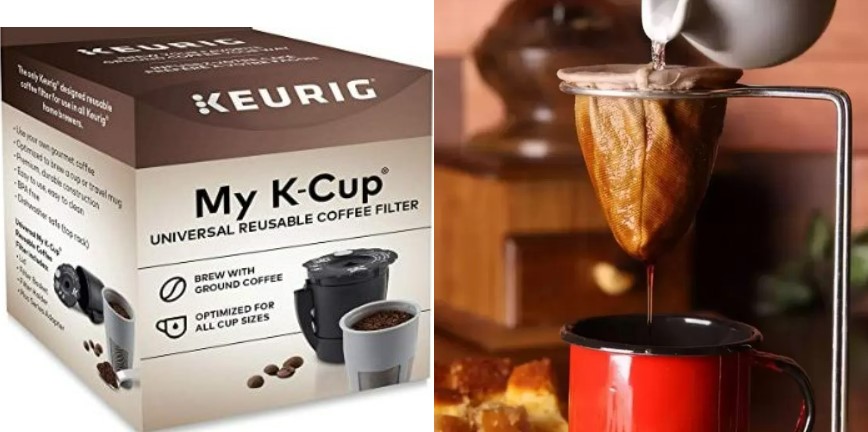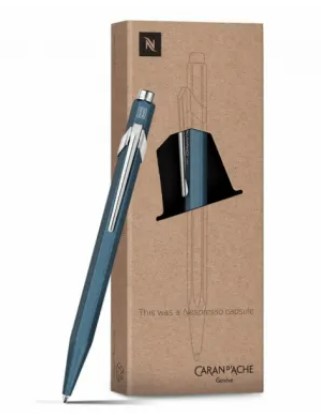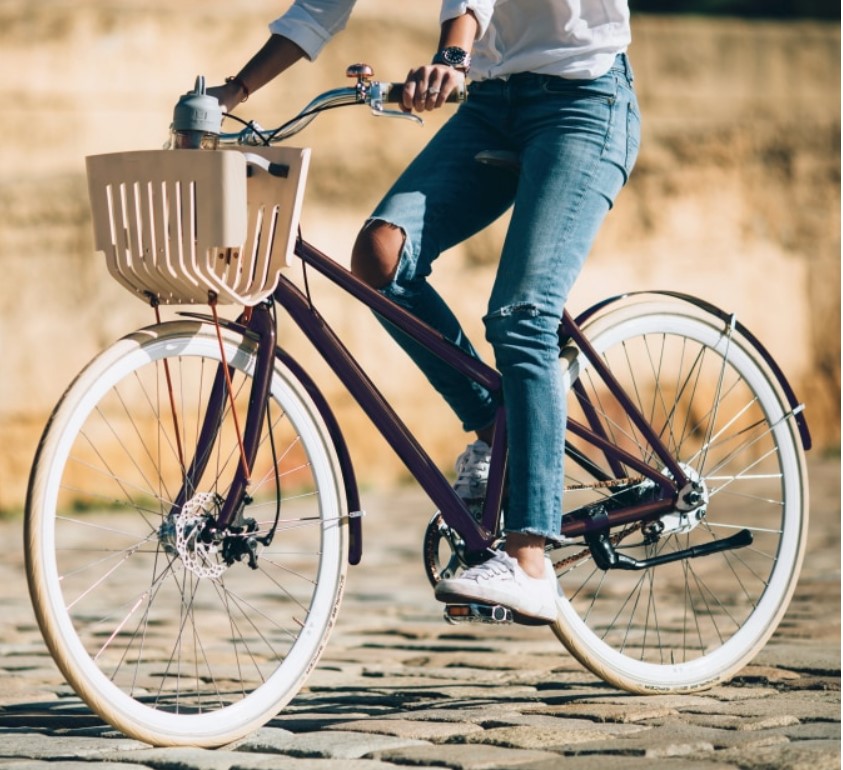Upcycling is great for dealing with unavoidable waste, but we always need to think: can this waste be avoided?
40,000 new coffee capsules are produced per minute in the world. Approximately 30,000 of them end up in landfills, where they can stay for 500 years before degrading. They are resistant because they need to withstand high pressure and temperature in the coffee preparation.

Have you ever thought about where the coffee pod of your machine will end up?
Biodegradable and reusable capsules alternative
My K-Cup is designed to be reused, but the convenience of disposable pods is lost.

Any resemblance to cloth filters is not accidental…
We have already talked here about biodegradable and compostable capsules. And more recently came NEXE Coffee, its capsules are made of vegetable fiber, compostable polymers and a bamboo casing and take only a month to decompose.

What if the world stopped producing capsules?
The Swiss supermarket chain Migros launched CoffeeB, a machine that uses pressed coffee balls wrapped in a protective layer of 100% raw vegetable-based material, maintaining its freshness and aroma. The resulting product is 100% compostable, with no packaging waste to worry about.

It is worth remembering that this idea is not new, in 2017 we already talked about capsules made of sugar here, the big difference from NEXE is that it has no sugar, respecting consumers who do not consume the sweetened beverage.
But what about the capsules that are in circulation now? Now yes, e need upcycled coffee pods!
Another product, Caran D’Ache pencil, is made with 25% of the pen’s aluminum body from used Nespresso capsules and the pencil’s lead is made from recycled coffee grounds. It’s great to see solutions that take advantage of coffee grounds, there are many more examples with it, but that’s a topic for another post.

And while we don’t have a world free of them, upcycled coffee pods are still a light at the end of the tunnel. And next time you have a coffee, think about where it ends up.
Sources: Business Insider South Africa, Independent, Gear Patrol, Food in Canada, Ads of the World, Grande Consumo, Casa da Louise, Daily Coffee News




















